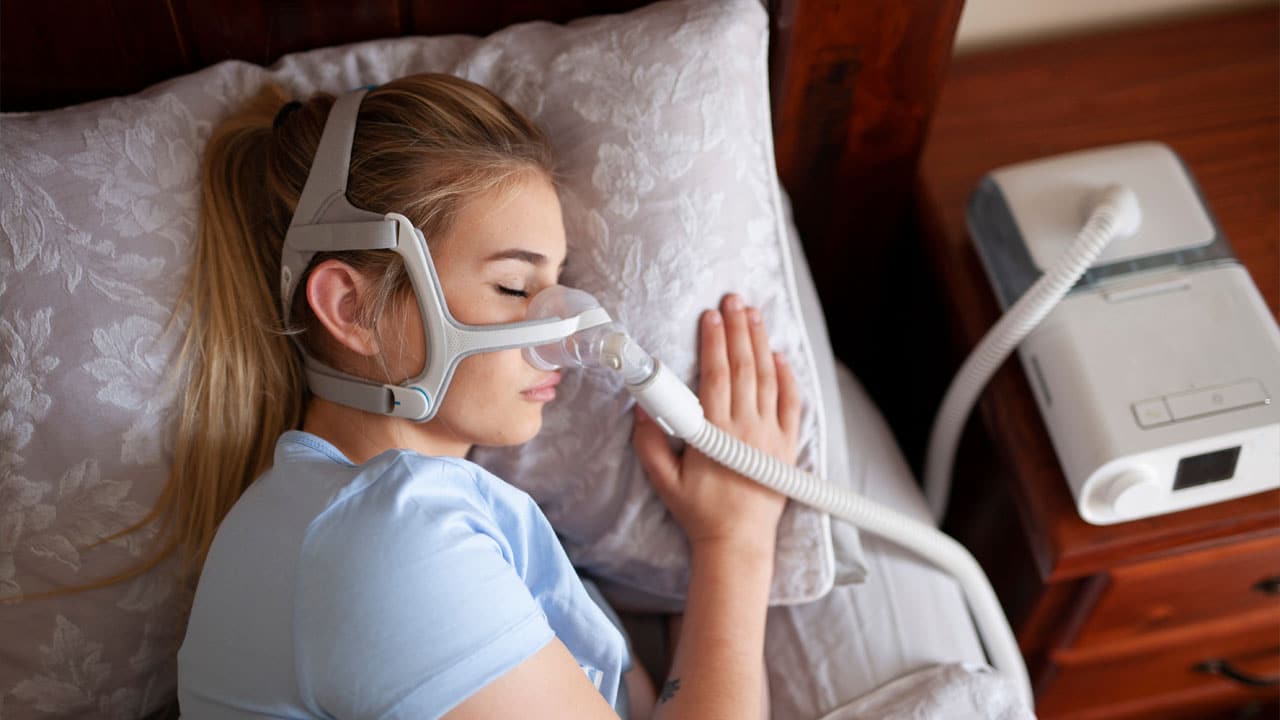
If you have ever woken up with a sore jaw, sensitive teeth, or a headache, you might have experienced bruxism. Bruxism is a condition where an individual grinds, gnashes, or clenches their teeth, typically unconsciously.
While there are various reasons why you might grind your teeth, Obstructive Sleep Apnea (OSA) may be a contributing factor. OSA is a sleep disorder that affects up to 13% of men and 6% of women across the United States.
Understanding the relationship between OSA and teeth grinding can help you learn the potential risks of untreated OSA and bruxism and tips on managing and treating both conditions.
What is Obstructive Sleep Apnea?
Obstructive sleep apnea (OSA) is a sleep disorder characterized by repeated pauses in breathing patterns during sleep. These pauses can last a few seconds to a few minutes and occur multiple times per hour.
OSA happens when the muscles in the throat relax and obstruct the airway, causing decreased oxygen levels and increased carbon dioxide. This can lead to various health problems, including high blood pressure, heart disease, and stroke.
What is Sleep-Related Bruxism?
During sleep, this condition is also called nocturnal bruxism or teeth grinding. It is a common condition that affects between 6% and 50% of children, 15% of adolescents, 8% of middle-aged adults, and 3% of older adults and can cause dental and health problems if left untreated.
Sleep-related bruxism can be classified as primary and secondary bruxism. Primary sleep-related bruxism is when no underlying medical condition or medication use can explain teeth-grinding behavior during sleep.
Secondary sleep-related bruxism is when teeth grinding during sleep is associated with an underlying medical condition, such as gastroesophageal reflux disease (GERD), anxiety, or depression, or is a side effect of medication.
The Connection Between Sleep Apnea and Teeth Grinding
There is a strong link between sleep apnea and teeth grinding. Those with sleep apnea may experience repeated pauses in breathing that lead to increased muscle activity in the jaw and teeth grinding.
Sleep apnea and tooth grinding negatively affect oral health. Bruxism caused by sleep OSA can lead to cracked, chipped, or broken teeth. This type of tooth damage may cause tooth or gum infections if not addressed.
Sleep apnea-induced bruxism can also cause tooth enamel erosion, weakening the tooth’s structure and making it more susceptible to cavities.
How a Sleep Dentist at Smile On Dental Salon & Sleep Apnea Center Can Help
You may need a sleep apnea assessment to determine if sleep apnea is causing nighttime bruxism or other oral health issues. Smile On Dental Salon & Sleep Apnea Center offers in-home sleep assessments for convenient, fast results.
Our sleep apnea center uses the Apnea Risk Evaluation System (ARES) to test your sleep from home. The test measures factors like your pulse rate, airflow, and head position and movement, allowing our specialists to determine if you have OSA and whether it’s causing you to grind your teeth at night.
We also offer a range of oral appliances to help you get a better night’s rest and to protect your smile. These custom-made and easy-to-wear oral appliances are designed to position the lower jaw forward, stabilizing your tongue so it does not block your airway, and are an excellent alternative to CPAP machines for those with mild cases of sleep apnea.
Schedule a Sleep Apnea Consultation with Smile On Dental Salon & Sleep Apnea Center If you think you may be suffering from OSA or sleep-related bruxism, schedule a consultation with Smile On Dental Salon & Sleep Apnea Center. Our team of dental professionals can help diagnose and treat your condition, improving your sleep and overall health.
Call us today at Deerfield: (224) 282-8939 or Lakeview: (773) 525-5545 to schedule an appointment.
